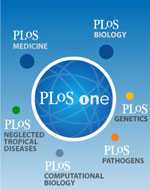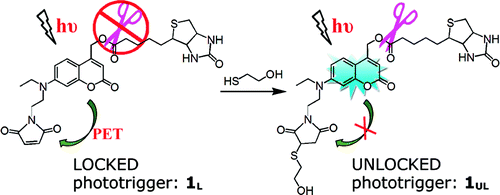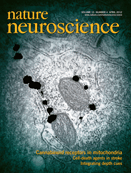PLoS ONE:MMP-10成肺癌发展和转移的关键基因
2012-04-27 Beyond 生物谷
佛罗里达州梅奥诊所的研究人员已经确定促发最常见的肺癌类型和其致命性转移的单个基因。他们的研究表明这种基因--基质金属蛋白酶10(MMP-10)也驱动其他形式的癌症。 研究结果发表在期刊PLoS ONE上,这项研究表明MMP-10是一种生长因子的分泌,然后肿瘤样干细胞样细胞利用MMP-10来保持自己的重要。然后这些细胞驱使肺癌的发生及其扩散转移。 研究结果提出重燃了治疗非小细胞肺癌的希望,非小细
佛罗里达州梅奥诊所的研究人员已经确定促发最常见的肺癌类型和其致命性转移的单个基因。他们的研究表明这种基因--基质金属蛋白酶10(MMP-10)也驱动其他形式的癌症。
研究结果发表在期刊PLoS ONE上,这项研究表明MMP-10是一种生长因子的分泌,然后肿瘤样干细胞样细胞利用MMP-10来保持自己的重要。然后这些细胞驱使肺癌的发生及其扩散转移。
研究结果提出重燃了治疗非小细胞肺癌的希望,非小细胞肺癌美国癌症死亡的首要原因。研究人员发现通过关闭MMP-10,肺癌干细胞失去发展成肿瘤的能力。当肺癌干细胞重新表达该基因时,它们可以再次形成肿瘤。
佛罗里达州梅奥诊所癌症生物学部教授Alan Fields博士表示:我们的研究数据提供的证据表明:MMP-10在癌症中起着双重作用。它不但刺激肿瘤干细胞的生长,同时也刺激肿瘤细胞的转移潜能。
肿瘤干细胞表达MMP-10,并用它促进自己的生长。已知的基质金属蛋白酶基因成员在肿瘤微环境、肿瘤周围的细胞和组织中大多数会表达。这些基因产生的酶参与癌细胞扩散过程。事实上,像MMP-10基因编码基质金属蛋白酶,实际上是对肿瘤干细胞的生长和肿瘤干细胞的维持是必需的。研究人员也惊奇地发现肿瘤干细胞比其余大部分肿瘤细胞能产生更多的MMP-10。
研究人员说,他们的研究表明MMP-10的过度表达也可能对其他人类肿瘤干细胞的生存至关重要。他们观察到MMP-10的表达与人类大肠癌、黑色素瘤、乳腺癌、肾、前列腺癌干细胞样细胞转移行为之间有联系。
研究人员正在寻找MMP-10刺激肿瘤干细胞生长的机制,并正在设计可以用来抑制MMP-10活性的抑制剂。
Fields博士表示:鉴于其在肿瘤干细胞和转移中双重作用,靶向MMP-10可能有效地治疗这些肿瘤。

doi:10.1371/journal.pone.0035040
PMC:
PMID:
Matrix Metalloproteinase-10 Is Required for Lung Cancer Stem Cell Maintenance, Tumor Initiation and Metastatic Potential
Verline Justilien#, Roderick P. Regala#, I-Chu Tseng, Michael P. Walsh, Jyotica Batra, Evette S. Radisky, Nicole R. Murray, Alan P. Fields*
Matrix metalloproteinases (Mmps) stimulate tumor invasion and metastasis by degrading the extracellular matrix. Here we reveal an unexpected role for Mmp10 (stromelysin 2) in the maintenance and tumorigenicity of mouse lung cancer stem-like cells (CSC). Mmp10 is highly expressed in oncosphere cultures enriched in CSCs and RNAi-mediated knockdown of Mmp10 leads to a loss of stem cell marker gene expression and inhibition of oncosphere growth, clonal expansion, and transformed growth in vitro. Interestingly, clonal expansion of Mmp10 deficient oncospheres can be restored by addition of exogenous Mmp10 protein to the culture medium, demonstrating a direct role for Mmp10 in the proliferation of these cells. Oncospheres exhibit enhanced tumor-initiating and metastatic activity when injected orthotopically into syngeneic mice, whereas Mmp10-deficient cultures show a severe defect in tumor initiation. Conversely, oncospheres implanted into syngeneic non-transgenic or Mmp10−/− mice show no significant difference in tumor initiation, growth or metastasis, demonstrating the importance of Mmp10 produced by cancer cells rather than the tumor microenvironment in lung tumor initiation and maintenance. Analysis of gene expression data from human cancers reveals a strong positive correlation between tumor Mmp10 expression and metastatic behavior in many human tumor types. Thus, Mmp10 is required for maintenance of a highly tumorigenic, cancer-initiating, metastatic stem-like cell population in lung cancer. Our data demonstrate for the first time that Mmp10 is a critical lung cancer stem cell gene and novel therapeutic target for lung cancer stem cells.
本网站所有内容来源注明为“梅斯医学”或“MedSci原创”的文字、图片和音视频资料,版权均属于梅斯医学所有。非经授权,任何媒体、网站或个人不得转载,授权转载时须注明来源为“梅斯医学”。其它来源的文章系转载文章,或“梅斯号”自媒体发布的文章,仅系出于传递更多信息之目的,本站仅负责审核内容合规,其内容不代表本站立场,本站不负责内容的准确性和版权。如果存在侵权、或不希望被转载的媒体或个人可与我们联系,我们将立即进行删除处理。
在此留言














#Plos one#
64
#关键基因#
0